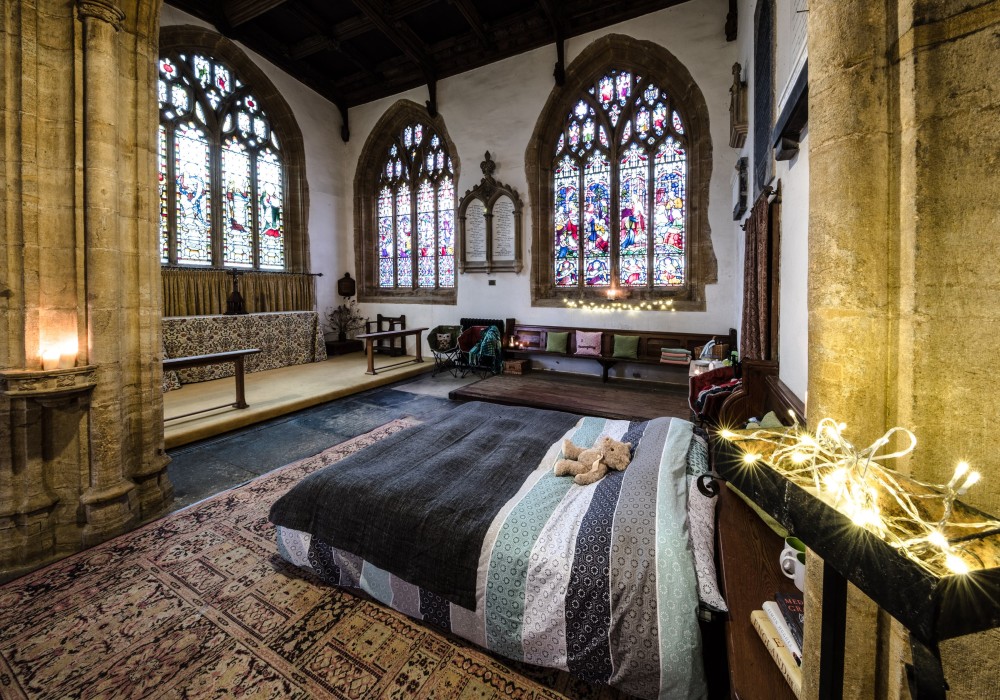From luxury stays to ‘champing,’ churches adopt pandemic-era Airbnb models

After the death of its founding pastor a few years ago, membership at Cullen Missionary Baptist Church in Houston took a nosedive.
André Jones, the current pastor, said that with fewer donations supporting the upkeep of a building equal in size to a city block, “we had more space than we knew what to do with and didn’t have the people or resources to pay for it.”
That’s when Cullen MBC turned to Church Space, a platform akin to Airbnb that allows houses of worship to rent their sanctuaries, fellowship halls, and kitchens to other congregations and organizations for as much as $30,000 a year.





